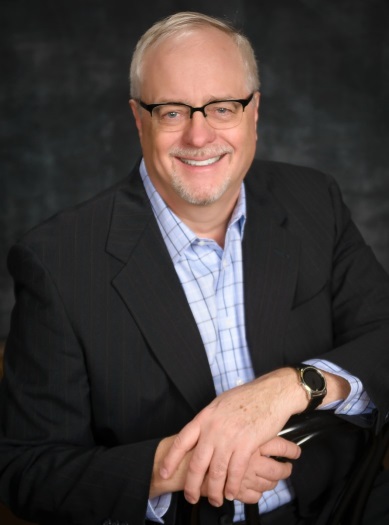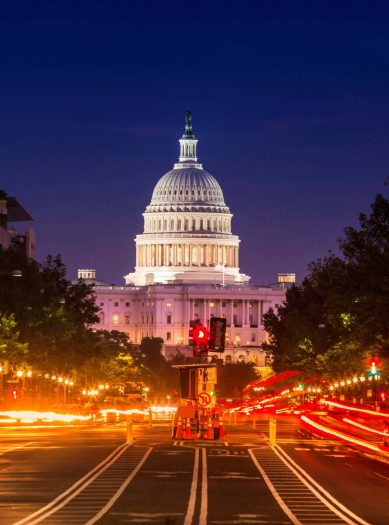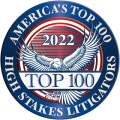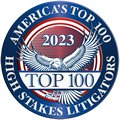Tom has extensive experience with federal payroll/employment/self-employment tax issues, probably having handled more diverse and more large-dollar cases in this arena than any other attorney in private practice in the U.S. A business’s failure to pay over withheld employment taxes is a serious matter because the IRS sometimes brings criminal cases against the persons responsible for the failure. Among his IRS representations were his successful, first-chair handling of tax-refund suits brought by the NFL’s Buffalo Bills football team, by LTV Steel, and by Marquette University.
Tom spent a substantial part of his career “chasing bad guys.” For example, he handled for the IRS efforts to obtain financial records respecting a taxpayer suspected of murdering his sister to obtain insurance proceeds. After extensive litigation in five or six states, federal courts ordered production of the records; but on the day before the taxpayer’s attorney was to produce the records to the IRS criminal investigator, the taxpayer murdered his attorney. In another case that Tom handled for the IRS, he won, after a five-day trial, an order concluding that a brother and sister, a lawyer and CPA respectively, had conspired to help delinquent taxpayers make fraudulent transfers of their farms to put property beyond the IRS’s reach. Very few lawyers practicing in the tax realm have experience handling criminal cases in court; and no accountants have handled criminal cases in court. Tom has five years of experience in that “crucible.”
Tom’s taxpayer-side work in cases with large criminal overtones has included some very high-profile representations. He represented a lawyer who was perhaps the IRS Criminal Division’s top target during a ten-year period. More recently, he represented the owner of a chain of tax-return-preparation businesses who was one of the IRS Criminal Division’s top targets, who was attempting to avoid having the IRS shut down his business and also avoid having those civil-side defense efforts used against him in a subsequent criminal prosecution. Tom’s experience as a former federal prosecutor may have been reassuring to these clients.
At an extreme end of the technical-tax spectrum is Tom’s work with what are widely considered to be the most complex substantive provisions of the Internal Revenue Code — those found in subchapter L, respecting the income taxation of insurance companies. When Tom arrived in the DOJ Tax Division’s Court of Federal Claims Section in 1989, he was immediately assigned to first-chair several pending cases arising under subchapter L, with an aggregate value at the time approaching $1 billion. Nine years later, in 1998, Tom accepted a partnership position from a private law firm in DC, familiar with his work at DOJ, that focused its practice upon the taxation of insurance companies under subchapter L. QED.
Beginning in 2004, Tom was at the forefront of the landmark litigation over FICA tax paid on stipends provided to medical residents – litigation that in March 2010 led the IRS to announce a billion-dollar-plus global concession of the issue. Tom first-chaired the landmark victories for The University of Chicago Hospitals in both the federal district court and then in the U.S. Court of Appeals for the Seventh Circuit. This reversal, by the IRS, of its long-time litigation position respecting an issue worth billions of dollars is one of the most notable IRS capitulations in history. At the time of this capitulation, Tom was lead counsel in more of the pending FICA-tax cases than any other attorney in the nation. He is the only attorney identified by The Legal 500 (2010 ed.) for work in this field. After working with many tax-exempt institutions to navigate the IRS’s implementation of its 2010 global concession, Tom concluded that most of these institutions had arguably been denied the proper amount of interest on their refunds of employer-portion FICA tax. Again finding himself on the leading edge, Tom represented teaching hospitals seeking to recover $500 to $600 million of additional statutory interest. Tom is the only lawyer in the nation to have actively pursued additional interest for the teaching hospitals in suits in federal court, filing his first suit in July of 2013. That huge-dollar, cutting-edge litigation was concluded in October 2019.
Tom has extensive familiarity with new Code section 1061(c)(4)(A), IRS Notice 2018-18, and the new regulation implementing Notice 2018-18 — provisions restricting the tax benefits of Carried Interest, relevant to hedge fund managers. He is the only tax attorney in the nation to have litigated the scope and meaning of the critical “corporation” term found pervasively across about 600 Code sections and in new section 1061(c)(4)(A). In that litigation, DOJ/IRS took incoherent positions, inconsistent with the IRS’s announced view in Notice 2018-18. Opinions issued by the federal courts of appeals in those litigated cases, in which Tom filed over 20 briefs, reflect holdings about the “unambiguous” meaning of “corporation” that are fundamentally inconsistent with Notice 2018-18 and the new regulation. Tom is the author of the seminal and lauded November 2020 article in Tax Notes on the IRS’s very troubling inconsistency under its regulations and rulings interpreting section 1061(c)(4)(A).
Over the years, Tom has handled cases in court that focused upon the valuation of tangible and intangible property. He is adept at working with expert witnesses. He handled one of the first litigated matters to address the valuation of a so-called Core Deposit Intangible, in a depreciation case brought by a South Dakota bank that had acquired another bank. He was deeply involved in a case brought by a large insurance company to value an insurance-expirations intangible, also sought to be depreciated. He tried a case to a jury involving the valuation of well-located swamp land donated to a government and deducted as a charitable contribution.
In 1989, Tom was entrusted by the Department of Justice, representing the IRS, with the first-chair in a multi-million dollar gift-tax case in federal court in Minnesota, brought by heirs to the 3M fortune. The case went to the Court of Appeals for the Eighth Circuit and then to the U.S. Supreme Court, where the IRS was victorious. United States v. Irvine, 511 U.S. 224 (1994).
Tom represented a billionaire in connection with the IRS’s audit of a large charitable contribution he made to a donor-advised fund. Tom successfully opposed the IRS’s efforts to take the deposition of the billionaire. Charitable contributions to a donor-advised fund remain of keen interest to the IRS on audit.
Tom first-chaired a “bet the ESOP” case in U.S. district court in the Southeast in which the IRS and the Department of Justice completely conceded $15 million of excise tax and penalties in connection with a purported prohibited transaction. The case was described in The Legal 500’s law-firm survey for 2009 as reflecting a taxpayer-favorable result that was “most unusual.”
In January 2022, Tom published, in a premier national tax publication, the first article ever on the impact of new FinCEN “beneficial ownership” filing obligations upon the nation’s 30 million small businesses, imposed by 2021’s Corporate Transparency Act and FinCEN’s regulations thereunder. The first wave of those new obligations will take effect in 2024. Tom was highly critical of the impact of that new law upon owners of small businesses. Recently, the Trump Administration’s Treasury Department announced that it would cease enforcement of the new law as to domestic businesses — a big win for domestic owners.
Tom’s experience with state and local tax (SALT) matters includes: a key role in assisting a Racino in recovering $30 million in gaming excise tax; first-chairing a two-day hearing in a charitable property-tax exemption case before an ALJ; formulating arguments, and collecting evidence and preparing witnesses, for a suit by a small business faced with a “bet the company” assessment of lodging excise taxes; and formulating arguments respecting equitable recoupment in a nine-figure California franchise-tax case.
Tom has long been professionally involved with cases raising the question whether Treasury Regulations are authorized and valid, particularly under so-called Chevron Steps Zero, One, and Two. Tom published the first of his eight articles in this field back in 2001 (Chevron Step Zero) and 2003 (Chevron Step One). Back in 2011, he guided the briefing of a case that held a Treasury Regulation invalid under Step One. In a case several years ago, his Chevron-related arguments (all steps) prompted the U.S. Department of Justice to eschew, on brief in the Second Circuit, any reliance on a Treasury Regulation that had never been held invalid in any court — a move by DOJ that is believed to be entirely without precedent. Tom has litigated to a conclusion many cases presenting deference issues, including a class-action suit seeking roughly $500 to $600 million. In 2016, he shared an ABA-sponsored panel discussion of Chevron deference with Professor Andy Grewal of the University of Iowa College of Law. In Nov. 2023, he published yet another article about Chevron, this time in the world’s leading journals devoted to current events in the tax arena, Tax Notes Federal and Tax Notes Global.
In May 2024, he was a panelist on a tax-controversy panel at the 39th Annual Federal Bar Association’s Insurance Tax Seminar; his segment addressed the pending U.S. Supreme Court case, Loper Bright, that would likely make substantial adjustments to the Chevron doctrine. After the Loper Bright opinion was issued on June 28, 2024, he published, on July 15th, a 5,000-word article about the case and its huge doctrinal shift in Tax Notes Federal and Tax Notes International. Tom’s article was chosen, from among many, to be featured on the cover of these leading publications. A copy is available on request. On May 16, 2025, he spoke on Loper Bright‘s meaning and potential impact at the 2025 Gem State Tax Symposium, held at Boise State University. Loper Bright, having recently overruled Chevron, will now take center stage in cases challenging a Treasury Regulations, including the dubious regulation interpreting new Code section 1061(c)(4)(A) set out in IRS Notice 2018-18 and the ensuing regulations. In sum, few, if any, tax attorneys in private practice in the U.S. have a deeper, more up-to-date knowledge of, and experience with, the deference to be accorded, or not, to Treasury Regulations.
An excellent tax lawyer must appreciate existing and emerging nuances in the tax law, and explain them correctly but as simply as possible. Very often, a correct analysis requires an understanding of how the tax law has changed over the years. The Internal Revenue Code is typically amended in two-year cycles, by each new Congress; and the Treasury Department later follows up with regulations that courts may conclude are controlling. Well-informed, keen analysis and clear writing are a tax lawyer’s stock-in-trade.
Tom is the co-author (revisor) of the definitive BNA Tax Management Portfolio (TMP) No. 524, Deductibility of Illegal Payments, Fines and Penalties. He also is the co-author (revisor) of the chapter of BNA/Bloomberg’s Tax Practice Series (TPS) that addresses IRS audits, assessments, and appeals. The TMP publication includes a chapter on the Foreign Corrupt Practices Acts (FCPA), which has ever-increasing importance for companies with multinational operations. Further evidence of his intellectual bent is that while he was a law student at Ohio State, he wrote an article on Wisconsin Rule of Evidence 407 that appeared in the Ohio State Law Journal, his law school’s flagship publication. Tom might be called a “thought leader:” across four different decades, he has published at least 28 articles in tax and non-tax publications. His writings have been cited by the Supreme Court of Wisconsin; in several leading tax treatises; and in at least 11 law school law reviews, from coast to coast, viz., the American University Law Review, the Creighton University Law Review, the John Marshall Review of Intellectual Property Law, the Marquette Law Review, the Nebraska Law Review, the Ohio State Law Journal, the University of Cincinnati Law Review, the University of Miami Law Review, the Missouri Law Review, the New York University School of Law Tax Law Review, and the University of Southern California Law Review. Tom also has been a frequent media quote source for prominent national publications addressing tax issues of the day. His original arguments on the invalidity of the IRS’s position on section 1061(c)(4)(A) were repeatedly and favorably addressed by a prominent columnist for Tax Analyst’s Tax Notes publication. See the drop-down menu for a page listing his many premier publications and media quotes, and his many premier speaking engagements.
Tom formerly was a tax partner, or a tax shareholder, with the Chicago offices of two of the world’s largest and most prestigious international law firms. After leaving a supervisory position with the U.S. Department of Justice’s Tax Division in 1998, after 14 years, he immediately became a partner with a “K Street” tax boutique in Washington, D.C. Tom’s nationwide federal tax practice thus brings with it the acumen and connections of a D.C.-based “tax insider,” coupled with a complex-litigation and prosecutorial resume of the highest order. Over the course of his tax-dispute legal career, Tom has been entrusted with first-chairing $3 to $4 billion of tax disputes in federal court, matching up against many of the nation’s premier tax-dispute lawyers. Tom has probably first-chaired more $1-million-plus tax refund suits in the federal courts than any other attorney now in private practice in the nation. This is real-world validation.
You now have a sense for the breadth and depth of Tom’s top-tier tax-dispute experience — for why he refers to himself as a having a “360-degree resume,” and for how he offers experience-based transitions from IRS Exam or Collection . . . to IRS Appeals, if necessary . . . to a federal trial court, if necessary . . . and to a federal appellate court, if necessary. No accountant or enrolled agent has trod that path, and only a minuscule percentage of tax lawyers actually has. A taxpayer facing the IRS ought to know how the path forward looks and will feel, if the hoped-for quick resolution cannot be obtained.
In recognition of his tax-focused contributions, Tom was again named an Illinois Super Lawyer in Tax for 2021. Thirteen times Tom has been named an Illinois Super Lawyer in Tax (i.e., Top 5% of all Illinois tax lawyers, as ranked by peers): 2005, 2007, 2010, 2011, 2013-2021. He is now listed among Washington state Super Lawyers. He frequently was named a Leading Illinois Lawyer in Tax Law–Business by the Leading Lawyers Network, including for 2025 (again, Top 5% of all Illinois business tax lawyers as ranked by peers); and named for his work in the tax controversy field in the 2007 and the 2010 and 2011 editions of The Legal 500. He has been selected as an Illinois Top 100 High-Stakes Litigator in 2020, 2021, 2022, and 2023 (www.Top100HighStakesLitigators.com) (noncompensated selection placing him in the top one-half of one percent of litigators of all types in Illinois and, for 2023, in Washington) — and is one of only six attorneys in the fifty states so recognized who identify tax as a practice area. While with the U.S. Department of Justice’s Tax Division in DC, Tom received its Outstanding Attorney Award in 1986, 1988, 1991, and 1997, before leaving a GM-15 supervisory post for private practice in DC in 1998. He thus has received a steady stream of formal, highly coveted accolades from his lawyer peers in the “tax vortices” of DC and Illinois — across five different decades and up through the present.
Tom has a flawless attorney-ethics record, as confirmed by his 10.0/10, “superb” rating at www.avvo.com.
In short, Tom brings a 40-year, award-winning, USDOJ/Mega-Firm tax resume with an intense “360-degree,” billion-dollar complex-litigation perspective, to his own tax-law firm — a firm operating in a highly efficient “boutique” setting . . . a setting without bureaucracy . . . a setting emphatically without any need for an expensive “team” . . . a setting without firm-generated conflicts of interest . . . a setting that eschews fancy artwork and reception areas . . . a setting that uses technology proficiently . . . a setting without money-losing, rate-boosting foreign offices . . . and a setting in Washington state and outside Seattle. If Tom takes on your dispute, you will get a thoroughly validated, highly efficient tax lawyer with very reasonable fees. Tom is proud to bring his premier experience and national stature to sparkling Redmond, WA, the epicenter of the world’s digital and AI technology revolutions.
Your Dispute Is Important, and So Is a Biography with Concrete Facts




